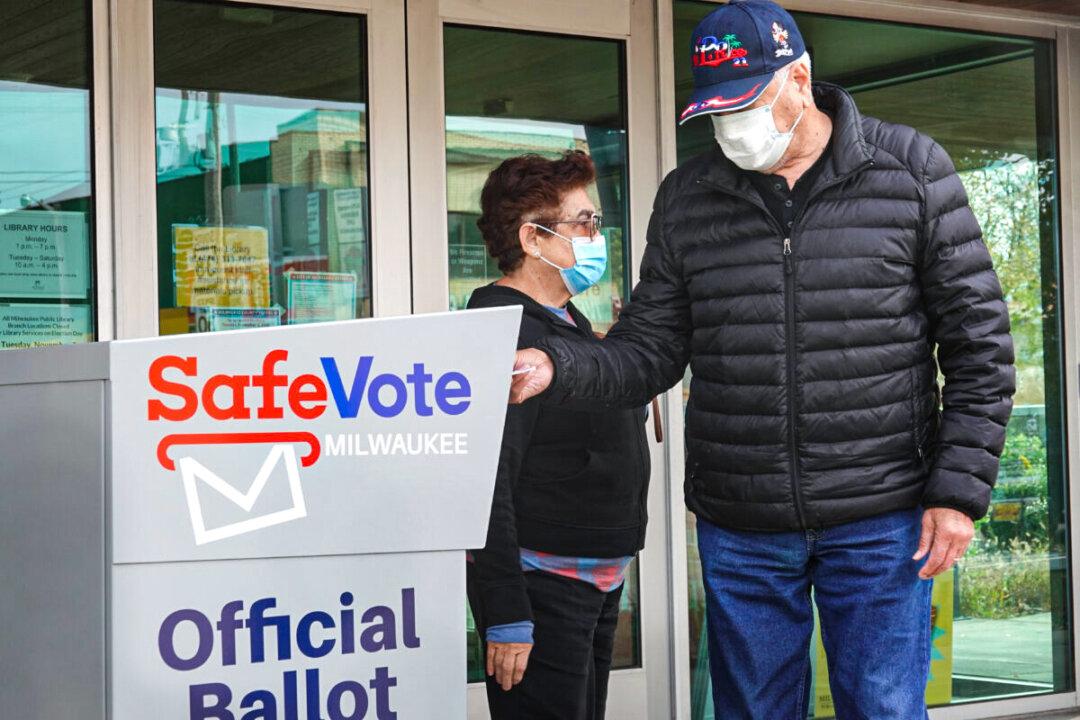A Wisconsin appeals court ruled this week that drop boxes can be used in next month’s primary elections, blocking a lower court that concluded that election officials lacked the authority to allow the ballot containers.
The parties appealing the ruling have “more than the mere ‘possibility’ of success on the merits,” a three-judge panel on the Wisconsin Court of Appeals ruled.





